VIETNAM
Every door opens more

Airbnb’s contribution to Vietnam’s people, places and prosperity
Airbnb’s contribution to Vietnam’s people, places and prosperity
Every Airbnb door opens more. A place to stay becomes a place to spend. A host becomes an employer and a guest becomes a contributor. While these may be small, distributed decisions, taken together, they create something larger: a platform for economic growth.
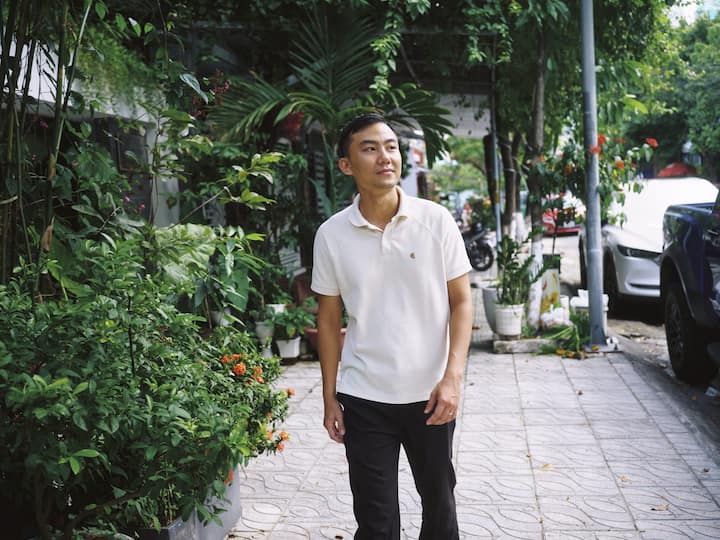
From rooftop homes in Hanoi’s Old Quarter where guests wake to the sound of street vendors, to timber stilt houses in Bắc Kạn where meals are shared on the floor, Airbnb grows tourism through connection, host by host, street by street. It shapes an economy built not just in cities but in the daily lives of people who open their doors and reshape their communities.
Short stays: national impact
Short stays: national impact
In 2024, Airbnb’s presence in Vietnam contributed VND 16.2 trillion to GDP. This included VND 6.1 trillion in direct impact and a further VND 10.1 trillion in flow on impacts. The economic activity generated by Airbnb supported 64,000 jobs and generated VND 6.5 trillion in wages across sectors like transport, hospitality, food services, and tour guiding, helping everyday Vietnamese benefit from a more inclusive and locally rooted visitor economy.
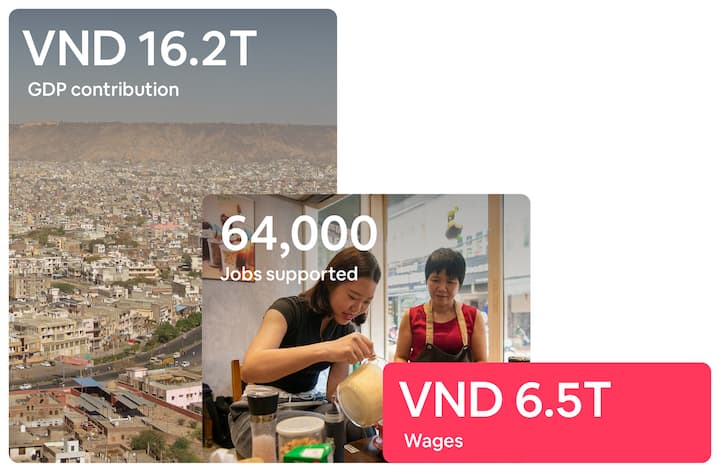
Supporting local communities beyond hosts
Supporting local communities beyond hosts
The value generated by Airbnb goes beyond what hosts earn from hosting on the Airbnb platform, spurring activity across a wide range of sectors within the Vietnamese economy.
Top sectors by GDP contribution
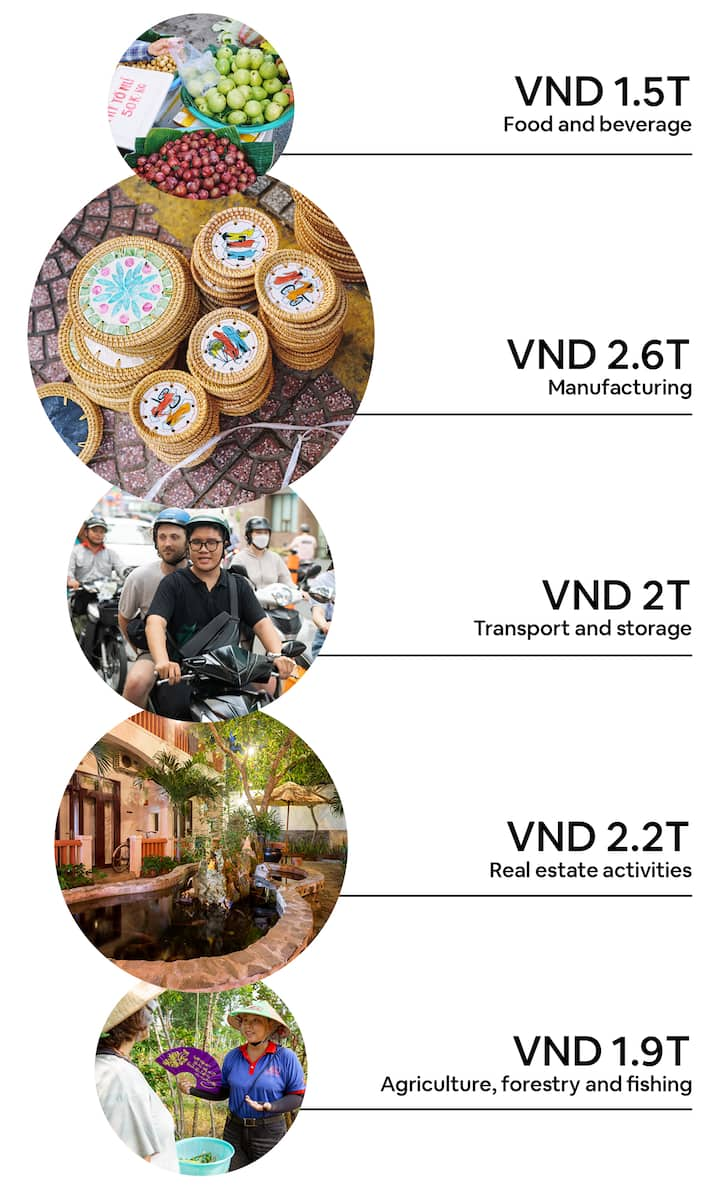

Top sectors by jobs supported
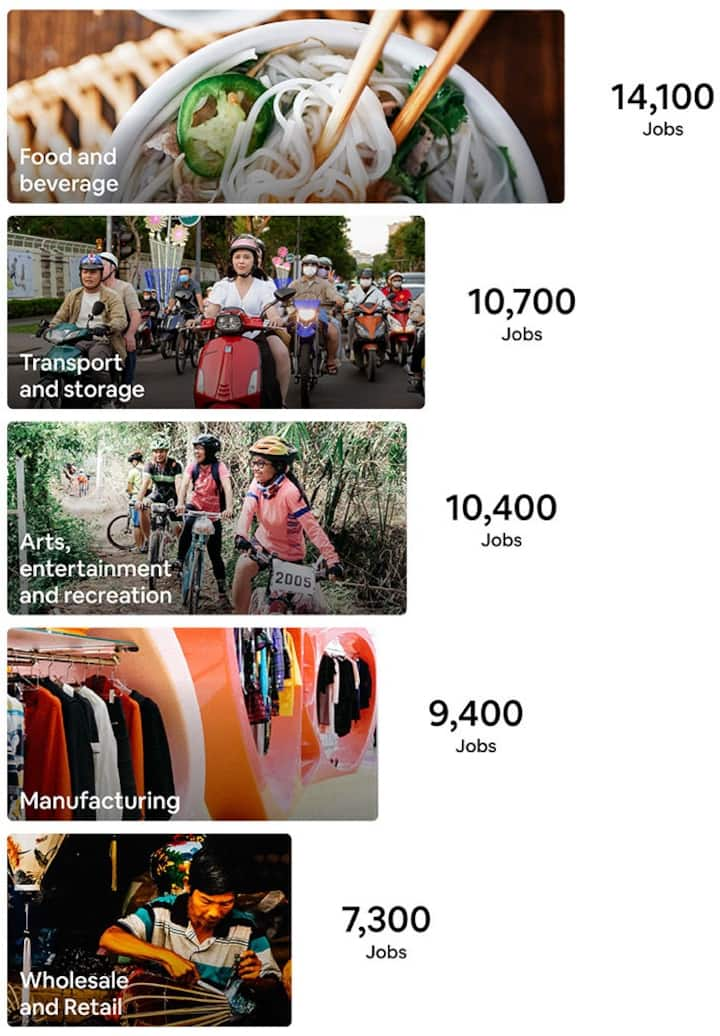

The guests behind the spend
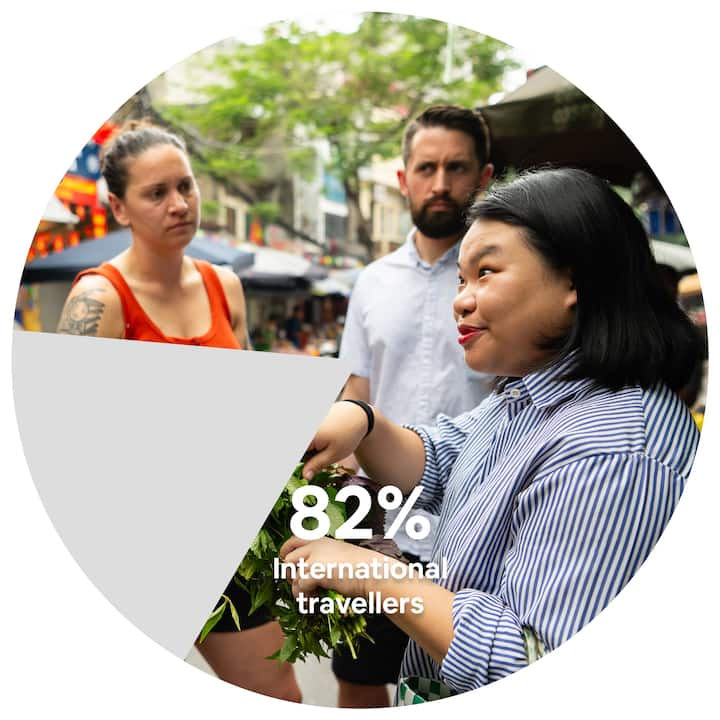
Airbnb’s contribution in Vietnam is powered by international curiosity. In 2024, 82 percent of Airbnb guests in Vietnam were from overseas. This global interest has positive local impact, with an average spend of VND 2.8 million per day in non-accommodation spending, guests contribute to the prosperity of communities across Vietnam. Importantly it demonstrates Airbnb’s ability to support the Vietnamese Government’s “Vietnam Tourism Development Strategy to 2030” which aims to achieve strong growth in international tourism numbers.
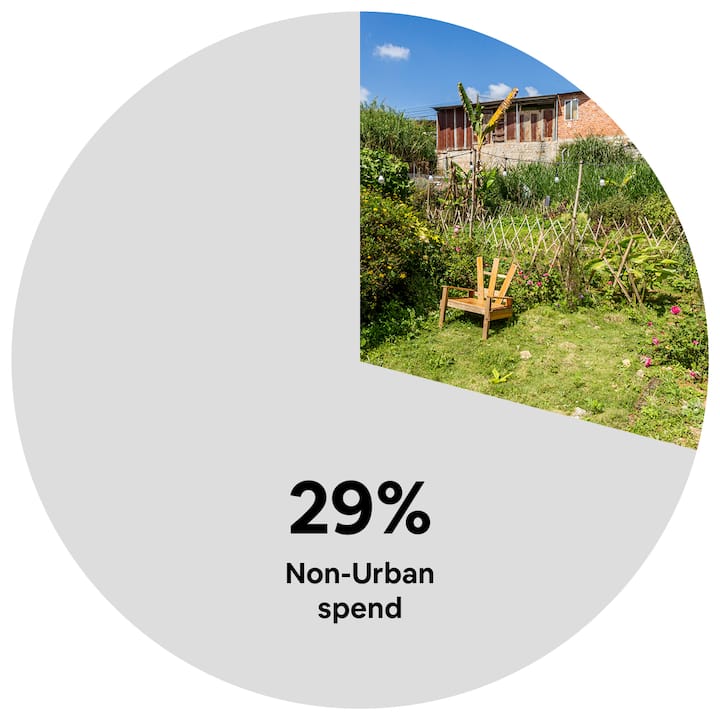
Where they go
In Vietnam, 29 percent of Airbnb bookings in 2024 took place in non-urban areas, including mountainous regions, riverside towns, and coastal communities. While many of these places may lack traditional hotels, they offer something more: local homes, a warm welcome, and the capacity to host.Since 2019, the share of gross booking value in non-urban areas has grown by five percentage points. The movement is clear, more travellers are choosing places defined not by hotel chains, but by community.
Host spotlight
The people behind Vietnam’s Airbnb listings are shaping tourism in diverse, meaningful ways. Whether it’s an ancestral home, a riverside house overlooking the Mekong, or a loft tucked away in the city, these hosts offer more than just a place to stay. They’re creating new, authentic ways to experience Vietnam.
Nathan
Da Nang, Vietnam
"I started hosting in Danang, Vietnam, in 2022 with just one apartment while still working as a police officer. What began as a side project quickly turned into a passion. By 2024, I made the decision to leave the force and focus on hosting full-time. Today, I manage 24 Airbnb listings and lead a team of 10. Hosting has helped me grow as a leader, improve my English, and build meaningful connections with guests and my community. I now partner with local businesses and mentor new hosts, driven by a belief in Vietnam’s potential and the power of hospitality to inspire change."
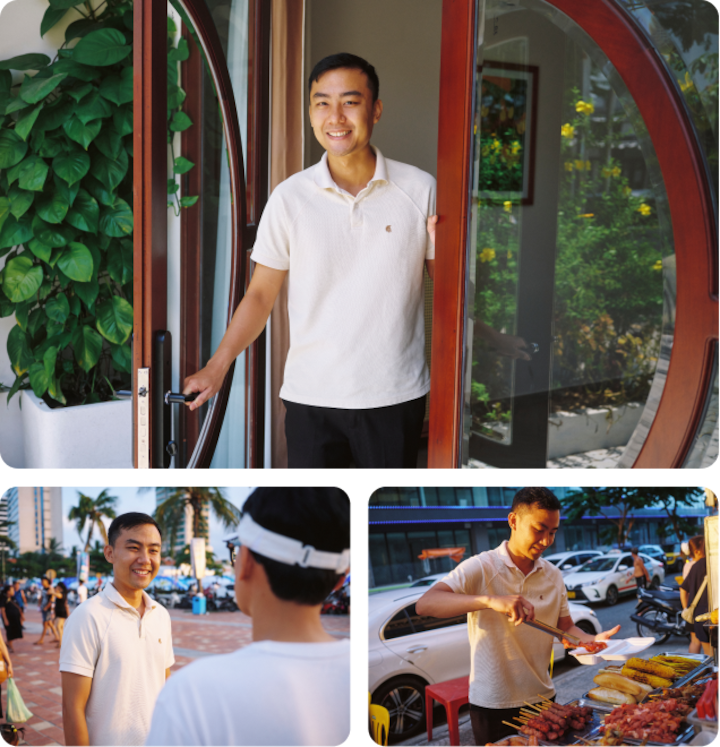

About the report
Airbnb commissioned Oxford Economics, a world-leading economic analysis and forecasting firm, to assess the impact of Airbnb’s ecosystem on communities throughout Asia Pacific.
Data source: Airbnb, Oxford Economics. Data based on 12 months from 1 January to 31 December 2024.